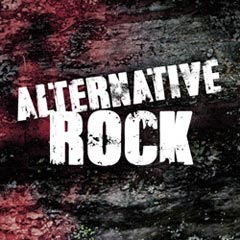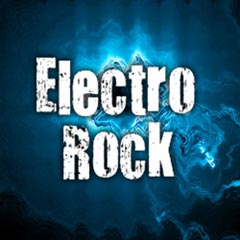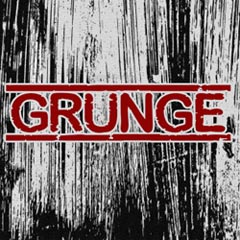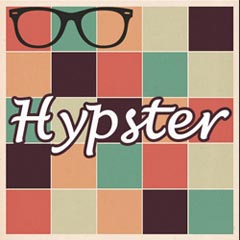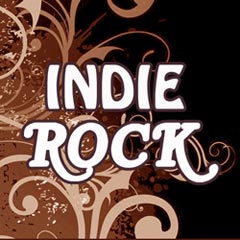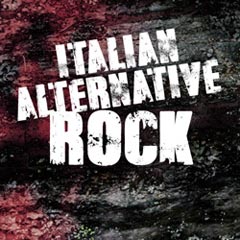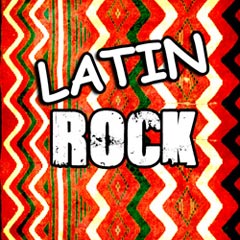Hipster
Hipster Music: A Blend of Alternative Rock and Electronic Moods
Hipsters are known for their eccentricity and unconventional lifestyle. They are the ones who ride on bicycles, sport scarfs around their neck, and wear goggles that make them look like they are about to conquer the world. Their unique style, preferences, and inclinations extend beyond their fashion, and into their music taste. Hipster music is a genre that blends alternative rock and electronic moods, with minimal patterns and radical chic lifestyle. In this blog post, we present to you a hipster playlist composed of famous and less known musicians, but with a lo-fi and cultural style. Are you ready to experience the hipster music revolution?
From jazzy days to modern indie, hipster music has taken the world by storm. This genre boasts revolutionary energy and quirkiness, which have captured the imagination of musicians and music listeners. Scores of vocalists and indie rockers have emerged from around the globe as the surge of the streamers searches out increasingly cool melodies. Great musicians like The Strokes, Arcade Fire, Arctic Monkeys, and Vampire Weekend have been creating timeless music for years, providing the perfect playlist for hipsters.
Hipster music is more than just melodies; it's an attitude and a way of life. It's about celebrating the unheard, the unseen, and the underappreciated. The lyrics of hipster music are always steeped deeply within thought-provoking verses that can bite as much as they can soothe. They give musicians a unique way to capture details about humanity, culture, and society that might be overlooked by those who are misguided by mainstream media. They provide an alternative to the consumerist culture that dominates the airwaves.
Hipster music is a global phenomenon, with artists from all around the world contributing to this genre. Some of these artists might not be well-known or have a significant following; sometimes, they are even underground. However, they create music that is as pure and genuine as any mainstream artist. They contribute to the uniqueness of the hipster movement, and their experimental and expressive music adds depth to this genre.
The hipster lifestyle is inspired by the 1950s Beat Generation. The Beat Generation believed in artistic self-expression. They believed that art, music, and literature were one of the purest forms of human expression and that self-discovery is only possible through them. This idea has been reinvented by hipsters, and they have made it a part of their lifestyle. They express themselves through the music they listen to, the clothes they wear, and the art they produce. This lifestyle is all about defiance, expression, and creativity.
Hipster music may not be for everyone, but it's a genre that should not be overlooked. It's more than just a trend; it's a movement that celebrates unique and diverse perspectives. Hipster music is a blend of alternative rock and electronic moods that provide the perfect soundtrack for the unconventional and eccentric lifestyle. This genre has created great musicians, artists, and thinkers who have contributed to the world of art and music tremendously. The hipster lifestyle is all about the celebration of self-expression, experimentation, and creativity. In conclusion, if you're looking for something that's unconventional, authentic, and genuine, then hipster music is the answer.
ON AIR - PROGRAMMING
Hipster music culture: features and brief history
The hipster music and subculture is a contemporary phenomenon, often associated to the urban bohemian life. This subculture is musically indie and alternative, while expressing itself in an eclectic manner, through vintage fashion, vegan and organic foods, and progressive political ideas.
The modern concept of hipster appears in the 1990s as a direct heir to the original 1940s hipster culture. In that age, the famous jazz age, the adjective hip defined the fans of this emerging music scene. As many other English words, the term hip was added with the suffix –ster, thus becoming hipster and entering the common language. At the beginning, hipsters were usually young white middle-class men that tried to emulate their Afro-American jazz idols. Among those rookie hipsters there were some great musicians like come Benny Goodman, Al Cohn, Gerry Mulligan, Stan Getz, Mezz Mezzrow, Barney Kessel, Doc Pomus, Bing Crosby, Frank Sinatra, Chet Baker and Gene Krupa.
Nowadays, the music scene is far from being similar to that: there has been a post-punk, noise and no wave revival, surpassing the traditional borders of “classical” music genres to forge particular forms like the hipster rap. This genre is the mix of rap music and hipster fashion, a combination that has been criticized for its sometimes poseur hues and themes.
This subculture rapidly spread in the USA, and right after WW2, some great authors of the Beat Generation, such as Kerouak and Ginsberg, started writing about these young hitchhikers, about how they would wander with their new spirituality on the streets of America. In the essay The White Negro, Norman Mailer describes the hipsters as young existentialists that lived knowing they would eventually die one day, being aware of that unavoidable social conformity they strived to escape, walking on their personal path towards identity fulfillment.
In the new millennium, the concept of hipster took on new meanings, both positive and negative; according to 2011 book HipsterMattic, the hipster scene is the revolutionary reaction to the cultural sloppiness of the new millennium, when everything was dominated by the reality shows, EDM and gossip. The book explains how old fashion, brands and music genres were revived and became the new new. Fashion became vintage, the grandmother’s sweater and Buddy Holly’s sunglasses transformed something nerdy into something cool. These new hipsters want to live sustainably and eat organic foods, to be recognized for their being different, whilst carving their own cultural niche. According to this subculture, style is not something you can buy in a mall, but rather something you can flush it out of a thrift shop, or you can make by yourself.
Aside from the revolutionary charge of the hipster subculture, some studies and articles flesh out the exclusive and bourgeois origin of the modern subculture as far as its poseur and grotesque facet is concerned. Among those works, we find the 2003 book The Hipster Handbook. The work, a satirical guide, light-heartedly describes some typical features of young hipsters: the mop-top haircut, the vintage handbag, the smartphone-and-cigarette attitude, the fixed gear bike, knitting, veganism, urban bee-keeping, fedoras, giant glasses and the progressive political views that often betrays their well-to-do, middle-class origin.
Considered from this perspective, the term hipster acquires a derogatory connotation that quite underlines the giddiness and pretentiousness of some members of this modern subculture. Some critics view the hipster culture as a weary attempt to go beyond post-modernism, tearing up its expressive power to remain in the nude aesthetics. Such dereliction led to the depletion of the original subculture, thus creating large-scale fashion icons that suffocate the original alternative ideas in art and music. In this view, the role of the hipster may be to appropriate and carry new ideas into the mainstream, commercially reshaping them, making the authentic elements of post-war cultures – Beats, hippies, punk and grunge – fetish. This would be a digested collage of past cultures, stripped of their meaning and attired in vaguely démodé and cool clothes.
This collaged group identity – made of fashion, posing and a vaguely undefined style – makes it difficult to define a hipster for anyone who is outside this self-proclaiming and selective circle. The hipsters avoid any label even if they all dress the same and they all behave the same in order to conform to their non-conformism and to their “iconic carefully created sloppy vintage look”.
According to some scholars, there are three strategies the hipster uses to dissociate from the hipster stereotype: aesthetic discrimination, symbolic demarcation, and proclaiming sovereignty. These strategies, supported by their self-definition of being an indie culture, allow hipsters to defend their indie tastes and ideas from being associated to the hipster mythology.
This could explain why apparent hipsters deny the appalling blatancy: being a hipster would devalue their tastes, interests and existential choices; for this reason, they have to distinguish themselves socially from this cultural category and defend themselves from being disparaged. In order to be able to deny being a hipster, even though appearance and behavior are clear signals, these people “demythologize their existing consumption practices by engaging in rhetorics and practices that symbolically differentiate their actions from the hipster stigma”. All this could have been a media operation to exploit a new alternative movement to create a commercial and marketable contemporary myth.
How Entertainment Workers Can Stay Productive Working from Home
Working from Home for the First Time
If you’re used to working on set or in a studio, working out of your home can take some getting used to, and that can be especially true if your kids are also home. To get things accomplished, you will need to set up regular office hours and find a quiet location where you can work without being distracted by your children or even your partner.
Since telecommuting will likely be a new norm for the foreseeable future, setting up an office in your home may be a wise choice for keeping yourself productive. A spare room or even a spare closet can work well as a home workspace, so be creative as you think about where to start. Keeping your kids busy is also a must, so if your kids don’t have home school assignments or other activities to keep them occupied, be sure to plan engaging activities for them.
Kids and partners aren’t the only distractions you will need to contend with when you work from home, so it may be helpful to have a few productivity tools to keep yourself focused and on track. You can use apps like Trello, Toggl, and Freedom to plan and manage your time. Of course, having a powerful smartphone is ideal for running your repertoire of apps. If your phone is having issues with powering apps, but you're worried that you won't be able to afford buying a new one, the good news is you can take advantage of savings opportunities when shopping for an upgrade. These opportunities include doing a trade-in or making monthly payments..
Finding Remote Work Opportunities
Need help getting started with a remote position? Then you should think about getting started as a freelancer. As a freelancer, you can essentially create your own schedule and workflow, and you can also take on as little or as much work as you need to keep yourself financially stable. That added flexibility and freedom can be perfect when you are juggling work and kids while you are at home during the lockdown, and you can get started by offering your freelance services to existing connections in the entertainment industry.
There are many websites that offer freelance job opportunities, and you can use many of them to advertise your services in addition to actively searching for jobs. This proactive approach can help you keep yourself afloat during the uncertain times ahead. You can also take this opportunity to figure out whether you can translate your skills to another industry entirely, whether that's consulting or marketing. If you just need something to tide you over until things pick back up, you can also consider working for one of these companies. .
Reaching Out for Added Support and Help
Working as a freelancer or in any other remote position can be a good way to bring in income while you are sticking closer to home. Even with these opportunities, however, you may still find yourself in need of additional resources to help your business survive amidst the economic chaos caused by COVID-19. Thankfully, there are a few avenues for getting the help you need during this crisis. Self-employed individuals in the entertainment industry have three options for accessing aid from the federal government: unemployment, paycheck protection, and economic impact loans. Restrictions and rules around each can vary by state, but you should be able to at least get some financial help. In terms of your mental health, there are also online resources available to help with feelings of anxiety, stress, and depression that you may be experiencing as a result of the global coronavirus pandemic.
This is a time of change and transition, many of which can be stressful. So, make sure you have the tools and resources you need to adapt your business to coronavirus challenges and restrictions, and to keep yourself well during this uncertain time.
What are you thinking about?

